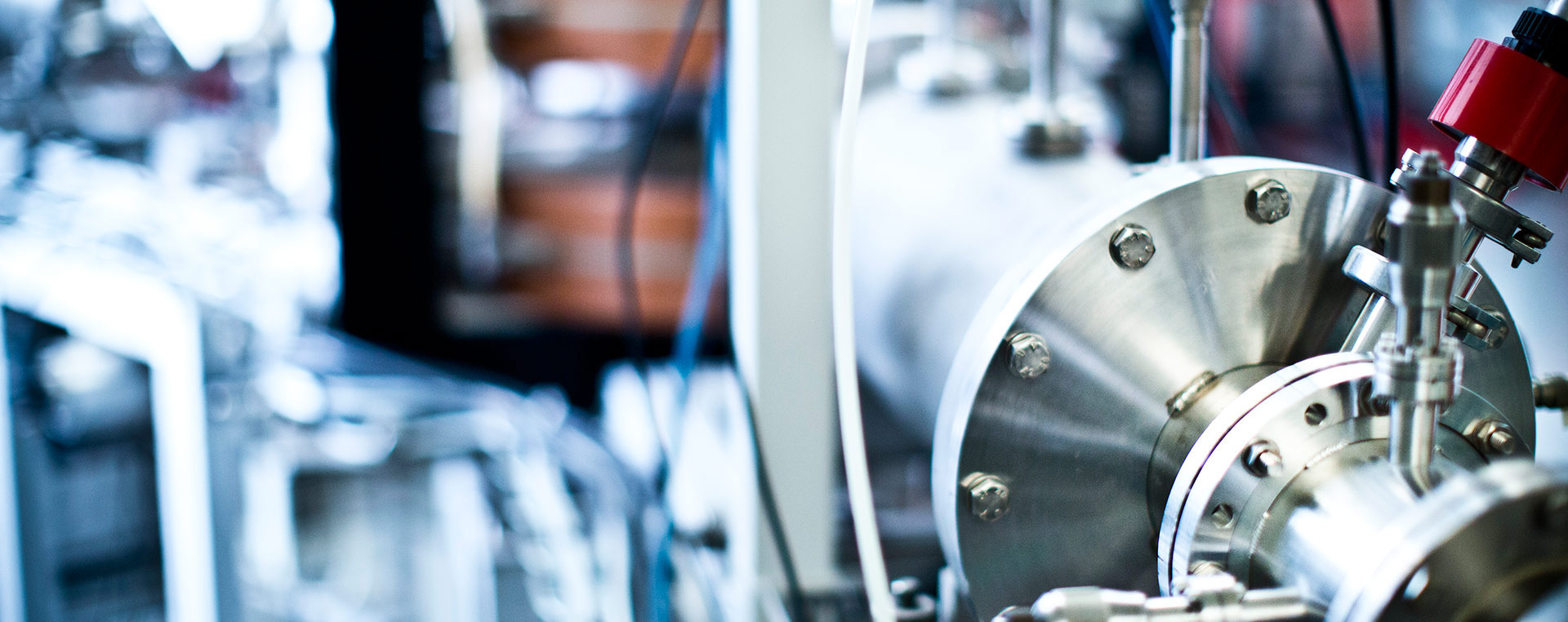
Leading the way to a future in thorium
The University of Huddersfield leads the UK in the development and advocacy of the thorium nuclear fuel cycle as an alternative to the uranium/plutonium cycle. Researchers based in the International Institute for Accelerator Applications (IIAA) have set the design parameters for feasible thorium-fuelled reactor assemblies for power generation and waste management. In addition to leading research in this area, the Institute also works to encourage widespread public understanding, leading to growing acceptance of thorium as a realistic, safer, cleaner and sustainable alternative fuel for nuclear fission reactors.
What was the problem?
How do we fill the gap of carbon-free nuclear power with a safe, cheaper and more sustainable form of nuclear power and how do we engage the public in the thorium debate?
Benefits of this research
The IIAA has developed an innovative thorium-fuelled Accelerator Driven Subcritical Reactor (ADSR) and explored methods of effecting the fertile to fissile conversion of thorium to provide fuel for conventional reactors. ADSRs have the potential to fill the gap of carbon-free nuclear power stations with a safer, cheaper, more sustainable form of nuclear power. As well as providing power, the higher energy neutron flux provided by accelerator-driven spallation allows ADSRs to burn the radiotoxic actinide waste of conventional reactors as fuel, thereby turning a liability into an asset.
What did we do?
Research has been carried out by the Institute to confirm the physical stability, thermal conductivity, expansion, and diffusion of thorium fuel in a reactor. Measurements of the mass and isotopic yields of the associated 233U fission reaction have also been carried out in collaboration with the Laboratory for Subatomic Physics (LPSC) and the French Alternative Energies and Atomic Energy Commission (CEA) in Grenoble, providing the most complete and accurate data to date on thorium’s fissile component.
Following the increasing interest in the IIAA’s research, the report Towards an Alternative Nuclear Future: Capturing thorium-fuelled ADSR energy technology for Britain, was requested by the former Minister of Science, Lord Drayson, to define the financial investment necessary for the UK to deliver the enabling technologies for the construction of a thorium-fuelled ADSR. The report demonstrated that the UK could compete aggressively in existing nuclear markets and open up new nuclear markets to meet carbon reduction targets. It shows that it is possible, through a public/private partnership, to realise ADSR technology by 2025, ahead of the Generation IV International Forum expectations.
The IIAA also engages strongly with the All Party Parliamentary Group on Thorium, and with the world’s first nuclear charity, The Alvin Weinberg Foundation. Labour-peer Baroness Worthington, shadow minister for Energy and Climate Change in the House of Lords is a former chair of the APPG and patron of the Alvin Weinberg Foundation and was awarded an honorary doctorate in 2013 by the University of Huddersfield in recognition of her work as environmental campaigner and advocate of thorium nuclear energy for low carbon emissions and energy security.
Engaging the public with this revolutionary technology is an important part of the ongoing research. As part of its commitment to public engagement the IIAA has delivered talks including Café Scientifique, TEDx, the Philosophical Society, Probus, the British Science Festival, the Beacons Rock Festival and Glastonbury, as well as appearing in numerous television, radio and magazine articles. The success achieved with these public events has led to the Science Museum in London launching a three-month exhibition at the Antenna Gallery dedicated to the University’s thorium research programme.
What happened next?
Throughout the research process the IIAA has maintained a continual focus on strong engagement with policy makers to inform the on-going UK debate on clean, low carbon, safe and sustainable nuclear power. The thorium fuel cycle was recently included in the Beddington Review document Nuclear Energy Research and Development Roadmap: Future Pathways. This recognises that thorium fuel could play a key role in the future pathways to nuclear power in the UK and is worthy of significant further research.
The IIAA is currently working on studies of the use of thorium fuel in the Multi-purpose Hybrid Research Reactor for High-tech Applications (MYRRHA) currently in planning in Belgium. A team of students is working over the summer to calculate how combining ADSR systems with thorium fuel will increase the rate at which actinide wastes can be destroyed in such a reactor.
As part of the thorium research programme at Huddersfield, Professor Bob Cywinski and Professor Roger Barlow created the Thorium Energy Association (THorEA), to bring together an international group of academics, industrialists and politicians to discuss all aspects of thorium deployment technologies. Biannual meetings are held at venues around the UK, promoting awareness, research and discussion around thorium. In 2013 the Association was granted full membership of Europe’s Sustainable Nuclear Technology Platform in recognition of its reputation for bringing academia and industry together. The current Chairman of ThorEA is Professor Becky Seviour, who is also a member of the IIAA.